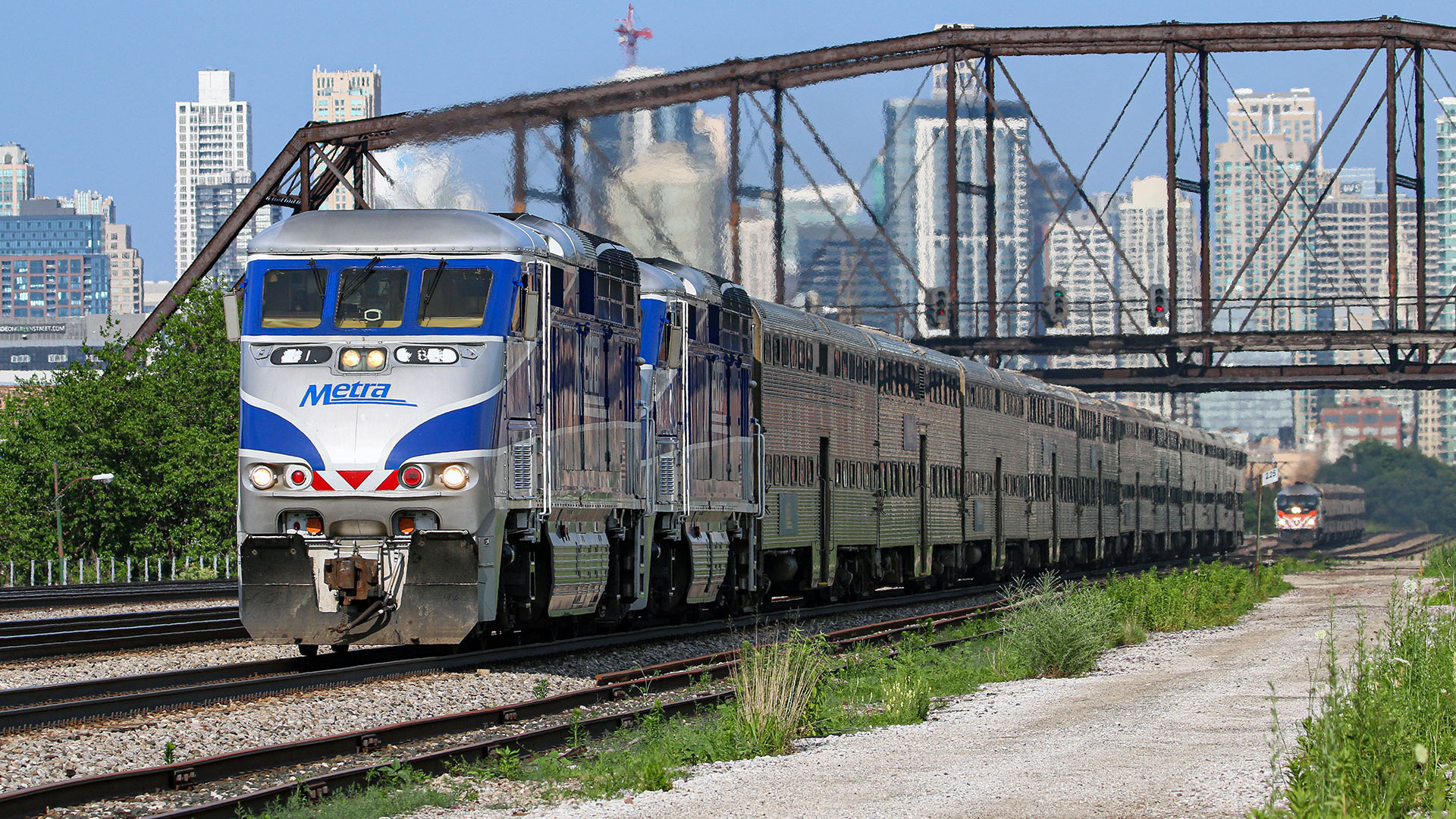

Chicago’s track-burning commuter rail network Metra announced this week that it is converting its older diesel-electric locomotives to pure battery power. It says the adaptation will not just cut emissions, but also operating costs.
Under approval from the Metra Board, the network has contracted Progress Rail to convert three of its oldest diesels to battery power, specifically its EMD F40PH-3s according to International Railway Journal. The refit locomotives are expected to have approximately 150 miles of range and are required to be capable of operating at up to 79 mph. Compatibility with existing rolling stock, from other motive units to passenger cars, is also required. The units will also wear a distinctive new green livery to emphasize their absence of exhaust emissions relative to their diesel counterparts.

Conversion is expected to take some 3.5 years for the initial three units, which may be augmented by an additional three for a total program cost of $34.6 million. On completion, the units will be deployed on the 40-mile Rock Island District line. Metra hopes that if its battery units prove themselves, they could serve as a proof of concept for other U.S. railroads to follow in their stead.
These three locomotives account for just some of the emissions reductions planned or already underway at Metra, which is also overhauling its diesel fleet. Later this year, Metra expects to take delivery of the first of 15 remanufactured diesels with EPA Tier 3 emissions equipment, improved from their original Tier 0 spec, with the option for 27 more after the initial run. Additionally, Metra says it’s planning to buy six battery-powered switchers. Battery-electric locomotives are also gaining favorability elsewhere, such as in Australia, where their use in specialized “infinity trains” means never needing to stop and charge.
Got a tip or question for the author? You can reach them here: james@thedrive.com